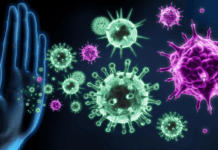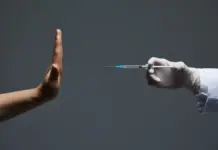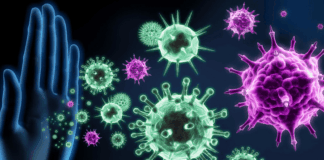
The Earth is a watery place. In fact, 71 percent of our planet is covered in water [1]. Despite this, one in nine people do not have access to safe drinking water – that’s around 785 million people [2].
The trouble is, 96.5 percent of all Earth’s water is found in the oceans in the form of saline water, and is not drinkable for humans. That only leaves us with rivers, lakes, and groundwater to satisfy our water needs [1].
According to the World Economic Forum, the global water crisis ranks as the number four risk in terms of impact on society [3]. Let’s face it – humans need water to survive.
If you’re reading this from Canada or the United States, you may not understand this crisis on a personal level. After all, you can turn on a tap and have safe drinking water instantly start flowing from the faucet.
This, however, is not the case for billions of people living on other continents. One NGO (Non-Government Organization) is trying to change that.
GivePower
Give Power’s mission is to install solar energy technologies that will bring essential services to developing communities in need [4]. Their most recent break-through project installed a solar-powered desalination system to bring clean, healthy water to the people in Kiunga, a rural village in Kenya [4].
With this technology, the salty ocean water will now be a viable source of water for the people living in this village. The system is capable of producing about 70 thousand liters or drinkable water every day, which is enough for up to 35 thousand people [4].
The Global Water Crisis
This ground-breaking new process could not come any sooner. The 785 million people mentioned earlier is just beginning. According to the World Health Organization, around 2.2 billion people worldwide do not have access to safely-managed water services, 4.2 billion people do not have safely managed sanitation services, and three-thousand-million lack basic facilities for washing hands [9].
This means that even those who do have a source of freshwater nearby may not be able to drink it because it does not get adequately cleaned.
This is particularly true for people in poor or rural areas. Data shows that eight out of ten people living in rural areas lacked access to basic sanitation services, and coverage of basic services among the richest groups was at least twice as high as the poorest [9].
Desalination: Then And Now
Desalination is a process wherein salts and other minerals are separated from your water. To do this, you have to force the water through a membrane (think of it like an extraordinarily fine sieve) [5].
The trouble is, any solution (water included) likes to stay balanced. It naturally wants to have equal amounts of water, salt, and minerals on either side of the membrane. This is called osmotic pressure [6]. In order to remove the salt and minerals from the water, you have to overcome this force, which requires immense amounts of energy [5].
Traditional desalination processes also require large amounts of chemicals, including pH adjusters, coagulants and flocculants, deposit control agents (antiscalants, dispersants), biocides and reducing chemicals. In post-treatment, chemicals include chlorine, anti-corrosion additives and compounds for remineralization [7].
GivePower has solved these problems through a new technology called “solar water farms” [8]. The system uses solar panels that produce fifty kilowatts of energy, the energy is stored by two high-performance Tesla batteries, and it uses two water pumps that operate 24 hours per day [8].
The quality of water it produces is better than that of a typical water desalination plant, and does not produce the saline residues and pollutants they create which are harmful to animals and the environment [8].
Changes Lives In Kiunga
Before GivePower installed their new solar-powered desalination system, the people of Kiunga, Kenya, had to travel for one hour to reach their only source of water. This water came from a well that was located on the same channel that animals use for bathing, and was full of pollutants and parasites [8].
This was the only water for them to drink, bathe, and wash their belongings.
“They were basically poisoning their families with this water,” says Hayes Barnard, president of GivePower [8].
Now, the 3 500 residents of Kiunga have fresh, safe drinking water coming straight from a tap.
Water For The World
After the profound success of the pilot project in Kiunga, GivePower plans to build more plants to relieve water scarcity in other parts of the world. They have already installed solar panels in 2 500 schools, businesses, and emergency services in seventeen countries, and are raising funds to build more “solar water farms” [8].
With this new technology, a future where water is accessible to everyone may be within reach.
Source: TheHeartySoul.com
Disclaimer: We at Prepare for Change (PFC) bring you information that is not offered by the mainstream news, and therefore may seem controversial. The opinions, views, statements, and/or information we present are not necessarily promoted, endorsed, espoused, or agreed to by Prepare for Change, its leadership Council, members, those who work with PFC, or those who read its content. However, they are hopefully provocative. Please use discernment! Use logical thinking, your own intuition and your own connection with Source, Spirit and Natural Laws to help you determine what is true and what is not. By sharing information and seeding dialogue, it is our goal to raise consciousness and awareness of higher truths to free us from enslavement of the matrix in this material realm.
 EN
EN FR
FR






![Catherine Austin Fitts: “What Happens When 70% of the Parents in America Discover That They Have Systematically Poisoned Their Children [With ‘Vaccines’]?”](https://prepareforchange.net/wp-content/uploads/2026/02/59da3256-8949-4aa2-9663-b2ef6b166986_800x420-218x150.webp)



















If this is true, I believe it is the kind of work that will help mankind, until the return of Jesus Christ.
Jesus himself says there will not be a Christos after him, only false ones. It is the consciousness that has to be raised in every willing soul. I invite you to read the books of Paramahansa Yogananda if you are a willing seeker.
On topic, agree that water should be accessible to all freely and no one takes that away. If we had the power to control water that is…
Falun Dafa (or Falun Gong) adherents believe in benevolent resolution, at least once they enlighten to that Fa principle.
http://en.minghui.org/cc/16/
Hopefully, the efforts of groups like GivePower may lead to a benevolent resolution of the Western World’s migrant crisis, as it’s explained by Zuerrnnovahh-Starr Livingstone.
https://educate-yourself.org/zsl/Trumps-Border-Wall-Must-Be-Built-11jan19.shtml#top